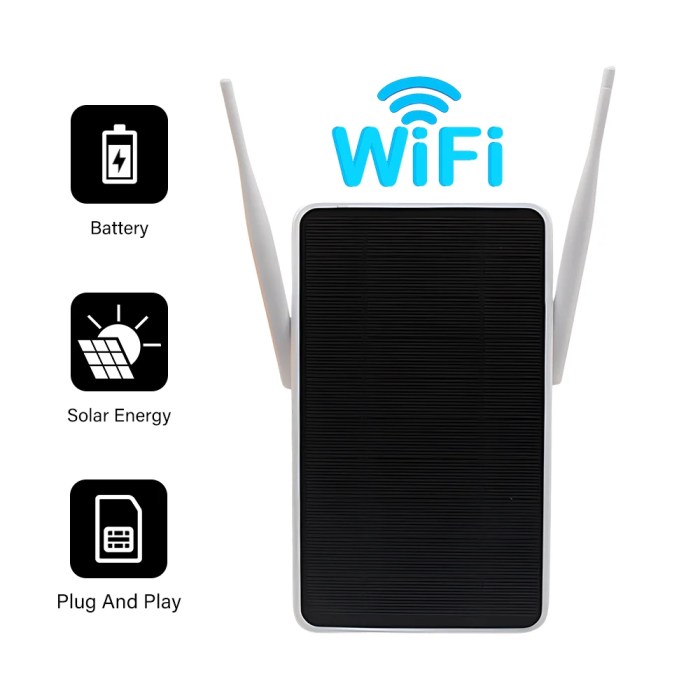Solar energy smart device leads the charge in the transformation of our technological landscape, promising efficiency and sustainability. As the world becomes increasingly aware of the need for renewable energy sources, solar energy smart devices emerge as essential tools that harness the sun’s power, offering numerous benefits such as reduced energy bills and minimal environmental impact. This innovative technology not only caters to individual needs but also plays a crucial role in the global transition towards greener energy solutions.
These devices exemplify the synergy between solar power and smart technology, providing a glimpse into a future where energy consumption is optimized and environmentally friendly. From solar chargers to advanced solar panels, the diverse types of solar energy smart devices available today showcase the versatility and advantages they bring to both residential and commercial settings.
Introduction to Solar Energy Smart Devices

Solar energy smart devices represent a revolutionary blend of sustainable energy and innovative technology. These devices harness the power of the sun, converting it into usable energy while integrating smart technology to enhance efficiency and user convenience. With the world’s increasing reliance on renewable resources, solar energy plays a crucial role in modern technology, reducing dependency on fossil fuels and promoting environmental sustainability. The transition to solar energy smart devices offers numerous benefits, including reduced energy costs, lower carbon footprints, and enhanced energy management for both residential and commercial applications.
Types of Solar Energy Smart Devices
Various types of solar energy smart devices are currently available, catering to different energy needs and preferences. These devices not only serve unique functions but also incorporate advanced features that enhance their usability.
- Solar Panels: These devices convert sunlight directly into electricity, providing a renewable energy source for homes and businesses.
- Solar Chargers: Designed for charging electronic devices, solar chargers are portable and perfect for outdoor activities.
- Solar-Powered Appliances: From lights to refrigerators, these appliances operate solely on solar energy, making them energy-efficient and cost-effective.
| Device Type | Function | Features |
|---|---|---|
| Solar Panels | Generate electricity | High efficiency, long lifespan |
| Solar Chargers | Charge electronic devices | Portable, lightweight |
| Solar-Powered Appliances | Operate on solar energy | Energy-efficient, user-friendly |
Applications of Solar Energy Smart Devices

Solar energy smart devices are highly versatile, finding applications in both residential and commercial settings. Their ability to provide sustainable energy solutions makes them invaluable in various scenarios.
- In residential settings, solar panels and solar-powered appliances significantly reduce electricity bills while promoting self-sufficiency in energy generation.
- Commercial applications include solar energy systems powering businesses, reducing operational costs and enhancing corporate social responsibility.
- Innovative uses in urban planning involve integrating solar energy smart devices in public spaces, such as solar streetlights and solar-powered charging stations for electric vehicles.
Technology Behind Solar Energy Smart Devices
The technological advancements that underpin solar energy smart devices are pivotal to their functionality and efficiency. Smart technology integration enables users to monitor and manage their energy use effectively.
- Photovoltaic cells: Convert sunlight into electricity.
- Smart grids: Facilitate efficient energy distribution and consumption management.
- Sensors: Monitor environmental conditions and optimize energy generation.
- Battery storage: Store excess energy for later use, enhancing reliability.
Environmental Impact of Solar Energy Smart Devices
The adoption of solar energy smart devices has a profoundly positive environmental impact. By harnessing renewable energy, these devices contribute to a significant reduction in greenhouse gas emissions.
- Solar energy devices have a substantially lower carbon footprint compared to traditional energy sources.
- Statistics indicate that the widespread use of solar technology can lead to a reduction of millions of tons of greenhouse gases annually.
- Solar energy smart devices not only help in combating climate change but also promote a cleaner and healthier environment.
Challenges and Limitations, Solar energy smart device
Despite the advantages of solar energy smart devices, several challenges hinder their widespread adoption. Addressing these limitations is crucial for the future of solar technology.
- Initial costs can be a barrier for many potential users, making it difficult to access solar technology.
- Variability in solar energy production due to weather and geographical factors limits reliability in certain areas.
- Grid integration challenges can complicate the incorporation of solar energy into existing infrastructure.
| Challenge | Potential Solution |
|---|---|
| High Initial Costs | Government incentives and financing options |
| Intermittent Energy Production | Advancements in battery storage technology |
| Grid Integration Issues | Development of smart grid technologies |
Future Trends in Solar Energy Smart Devices

Emerging trends in solar energy technology indicate a promising future for smart devices. Innovations continue to enhance their capabilities and accessibility.
- Next-generation solar panels are being developed with higher efficiency ratings and smaller sizes.
- Integration of artificial intelligence in energy management systems is anticipated to optimize energy consumption patterns.
- Market growth predictions suggest an exponential increase in solar energy smart devices over the next decade, reflecting the global shift towards sustainable energy solutions.
Case Studies and Real-World Examples
Examining successful implementations of solar energy smart devices provides valuable insights into their potential and effectiveness.
- Case Study 1: A residential community that transitioned to solar energy, resulting in a 60% reduction in energy costs.
- Case Study 2: A large retail chain that adopted solar panels, leading to significant savings and enhanced brand reputation.
- Case Study 3: Urban areas implementing solar streetlights, improving public safety and reducing energy consumption.
Ending Remarks: Solar Energy Smart Device
In conclusion, the evolution of solar energy smart devices is paving the way for a more sustainable future, balancing technological advancements with environmental responsibility. As we look forward to emerging trends and innovations, it’s clear that these devices will play a vital role in shaping our energy landscape, reducing carbon footprints, and enhancing our quality of life. Embracing solar energy smart devices today means investing in a cleaner, more efficient tomorrow.
